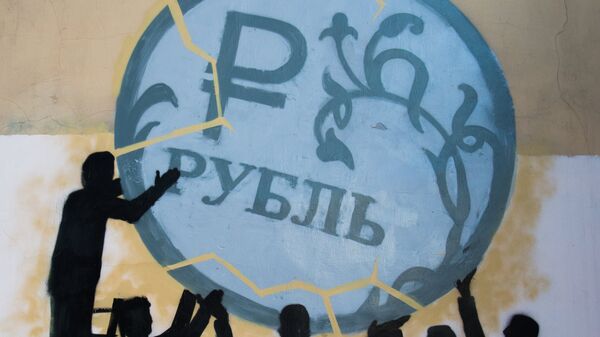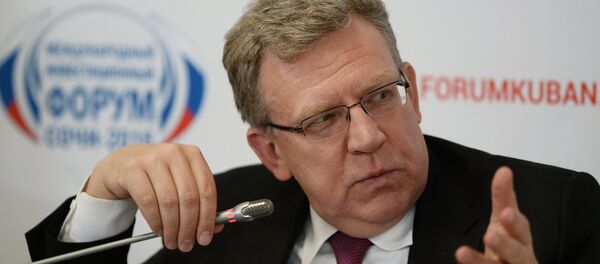On January 6, the Moscow Stock Exchange closed at 59.6 rubles/$1, against 61.3 on December 30. Since the first nine days of the year are holidays in Russia, the Russian currency is usually in demand by foreigners during this period.
This year’s trend was unexpected because in previous years, in December and January, the ruble traditionally weakened.
In an interview with Radio Sputnik, Yaroslav Lissovolik, chief economist at the Eurasian Development Bank and professor at the Diplomatic Academy of Russian Foreign Ministry, pointed out that there are several driving factors behind the strengthening of the ruble.
"The rise in oil prices was a major factor but this appreciation of the ruble is outpacing the rise in oil prices. It points to the importance of capital flows [to Russian assets]. This may be due to the fact that global financial markets are starting to perceive the ruble as one of the most attractive currencies across emerging markets," Lissovolik said.
According to him, the trend has been clearly seen from 2016 to 2017. Global financial institutions are sending a signal that the "ruble is probably one of the best bets" of this year.
"The Russian economy is going from negative territory last year to most likely a positive territory this year. Also it is certainly important that we’re going to have record low inflation rates this year," Lissovolik said.
He suggested that stable oil prices, the strong ruble policy by the Russian Central Bank and high-interest rates maintained by the Central Bank will have a stronger effect on the financial market this year.
"I think that this ruble appreciation that we saw in the beginning of the year is probably going to continue and may last for at least next several months," the economist said.
"To a certain extent the ruble strengthening results from positive expectations of the possible removal of anti-Russian sanctions under new United States President Donald Trump," Orlova told the Russian newspaper Izvestia.
"Foreign investors’ interest to Russian assets has recently been increasing due to an improvement in the Russian economy," said Alla Dvoretskaya.
For example, the share of non-resident holders of Russian government bonds has (OFZ) increased from 21 to 27 percent in a year. The situation in the Russian economy is gradually improving de to a lowering inflation rate, a drop in capital outflows and the strengthening of the budget system, she explained.




